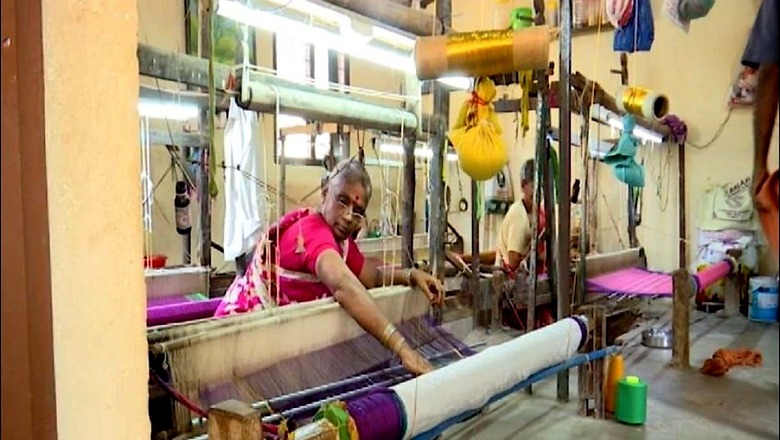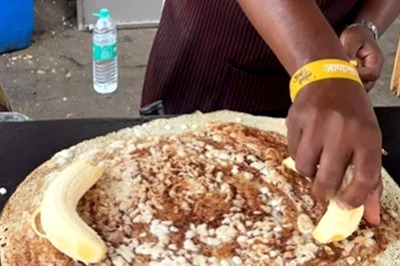
views
Creating history in the production of natural fiber garments and sending their products to London and the USA for sale, the Anagaputhur natural fiber weavers made headlines in the past. Now, they have once again come into the limelight by weaving a “Vettiver saree” (Khas Khas) for the Thai Princess.
Another pride of Kanchipuram, known as the district of lakes, is the weaving industry. Weaving has been the main industry of the district, and despite the introduction of various new technologies in clothes production, weaving is still done in the traditional way. Weavers have been carrying on the traditional weaving business without changing the age-old methods.
The Anakaputhur weavers have been revolutionizing the natural fiber weaving industry for 15 years and have produced garments in 25 types of natural fibers. After receiving a warm welcome, they expanded their business not only in Tamil Nadu but also internationally. Currently, they use 10 handlooms to produce natural fiber clothes.
In 2015, the National Handloom Day was celebrated at Anna University, Chennai, with Prime Minister Modi in attendance. On this occasion, the Anagaputtar Natural Fiber Weaving Group produced a ‘Herbal Shawl’ which was worn by the Prime Minister. The 7th International Natural Fibre Symposium and Exhibition is currently being held in Thailand. The seminar was inaugurated by the princess of the country, and to honor her, a Khas Khas saree will be presented. This saree was woven by three people over the course of three days. It is made from the oil extracted from the Khas Khas roots and the fibers. This is yet another honor for the natural fiber weavers of Anakaputhur.
As the scent of the Vetiver saree spreads to Thailand, the weavers also request support from the Tamil Nadu government to improve their business and livelihood. They are saddened by the lack of cooperation from the central and state governments, which has prevented them from developing this industry on a larger scale. Anakaputhur Municipal Corporation is a town known for its traditional handloom weaving and is home to over a hundred weaving families. However, the handloom industry has been declining, resulting in a significant decrease in the number of looms from 5,000 to just a few.
In this context, Shekhar, one of the handloom groups, has succeeded in making sarees from banana fiber with a team of less than ten people working in a small house. They started with banana fiber and have now expanded to weaving sarees from coconut fiber, bamboo fiber, rice cactus, pineapple plant, and Kongura. Fiber is extracted from these materials, dyed, and woven into sarees. Notably, cotton sarees made with banana fiber are preferred over cotton sarees made with cotton yarn due to their cooling properties.
A cotton saree made with 10 to 50 percent banana fiber mixed with cotton thread is sold for prices ranging from Rs. 2,000 to Rs. 7,500. Silk sarees with 15 to 50 percent banana fiber in the silk yarn are sold for prices between Rs. 3,500 and Rs. 25,000.
Speaking about this, Shekhar said that they are struggling to set up a Handloom Cluster due to a lack of space. They have been requesting both the central and state governments for eight years to allocate sufficient space for their groups, but it has not been provided. By supporting the handloom industry, weavers will earn a sufficient income, and the youth will have employment opportunities. Therefore, they urge the governments to lend a helping hand in saving this dying industry.



















Comments
0 comment